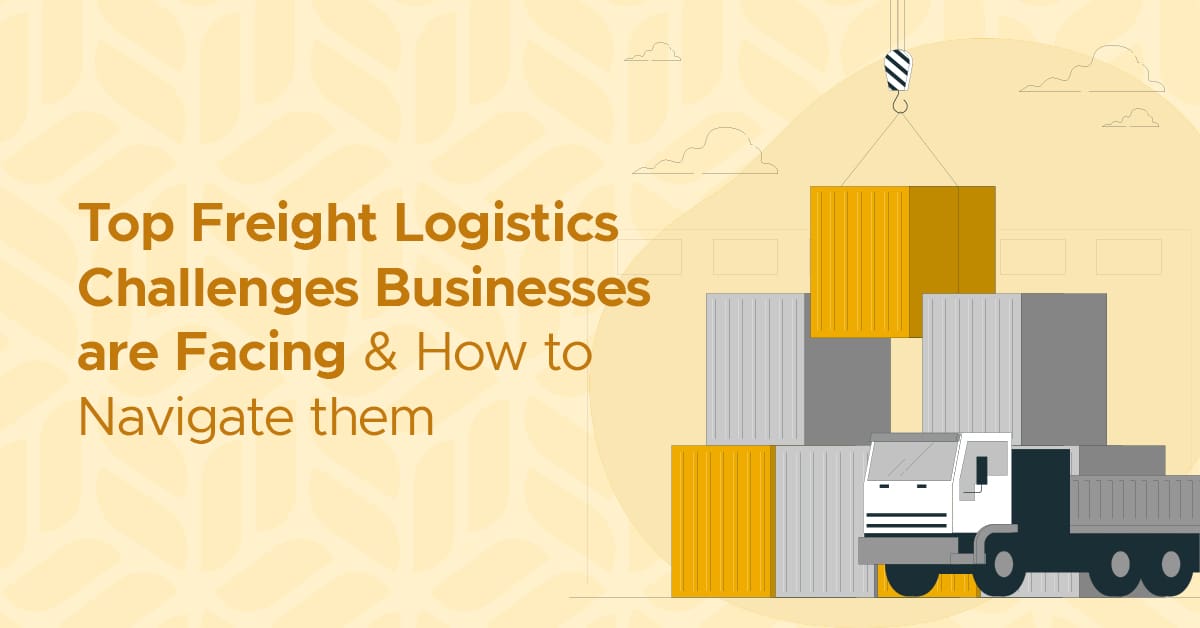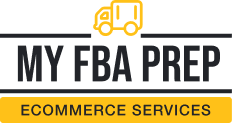
Top Freight Logistics Challenges Businesses Are Facing & How to Navigate Them

This is a guest post from Daniel Prevost of Port Side Logistics. Daniel is a freight broker as well as a minister who’s passionate about serving people and helping them discover their value. Port Side Logistics is a veteran-owned freight brokerage focused on building long-term relationships where they provide a high level of personalized service to each of their clients.
In our unpredictable world, the tidal wave of freight logistical challenges are a constant threat to businesses large and small. Whether it’s rising fuel costs or global supply chain issues, there’s only so much that can be done to minimize the effects on one’s freight operations. The question then becomes: How do businesses prepare to ride the waves rather than be engulfed by them?
Having served as a shipping manager during the COVID-19 pandemic, I learned firsthand the drastic effects a supply chain crisis can have on shipping operations and the importance of building resilience ahead of time. Now, as a freight broker with Port Side Logistics, I help businesses optimize their transportation logistics and develop that resilience for when the storm hits.
Based on conversations with hundreds of shippers and business owners, I’ve observed that those who’ve effectively overcome recent logistical challenges share common strategies. Let’s delve into these challenges and explore how companies navigated them.
1. Rising costs
Freight can be expensive, especially when fuel prices go up, which has happened frequently since April 2020. That increase then drastically raised operational costs for trucks, freight, and even goods. As a result, freight carriers and brokers have gone under, thus compounding difficulties for shippers.
Success strategy: Make long-term deals with quality partners
In response, many businesses now hunt for the lowest rates they can find. However, this approach often proves counterproductive. Take Elaine, a shipping manager at a milling company: She could write a book about all her bad experiences in dealing with cheap carriers that her customers chose, from filthy trailers to truck rollovers. Frustrated, Elaine took matters into her own hands and now brokers all of her own freight, rather than allowing clients to opt for the cheapest options.
Elaine’s experience exemplifies the adage, “You get what you pay for.” So, instead of asking, “How do I find the best price?” Businesses should consider, “How do I gain the best value?” Prioritizing service over price may entail higher initial freight costs but avoids costly issues over the long term. If a truck rollover results in damaged freight, the time and effort that goes into dealing with a claim could far outweigh the “savings” a business receives by choosing a cheap carrier.
Shippers that value service over price experience fewer headaches and usually save more money in the long run. Instead of prioritizing cost savings, businesses should look for providers that have a track record of exceptional, personalized service. Referrals from other shippers for reputable providers can be helpful in this search.
2. Supply chain disruptions
Major supply chain disruptions are inevitable and can crop up at any time. Whether it’s pandemic-fueled shortages or poor weather, unforeseen factors can quickly impede freight logistics.
A recent example of an unexpected disruption is the collapse of Baltimore’s Francis Scott Key Bridge. The incident stranded 11 vessels in port and left hundreds more seeking alternate ports to embark at, creating a logistical nightmare for thousands of businesses. Many companies scrambled to find other ways to deliver their cargo to their intended destinations or, in many cases, lost their freight all together.
Success strategy: Establish a diverse network and alternate routes
Expanding your network within the transportation industry opens more avenues to overcome obstacles. When you build connections with carriers, brokers, or freight forwarders beyond immediate needs, you secure access to resources when you need them most.
Businesses can also stay ahead by establishing alternate routes for more predictable disruptions. For example, if a primary route goes through regions prone to harsh weather, having a different path in place can prevent freight delays during bad conditions. Whether it’s preparing for winter storms in the Dakotas or navigating hurricane seasons in coastal states, successful businesses plan for the worst so they don’t scramble when unexpected problems arise.
If you can’t dedicate time to cultivate a wide network, try to find at least one qualified broker who already has their own bandwidth of reliable carriers and an understanding of alternate routes for your frequent lanes that you can leverage.
3. Technology integration
Not long ago, people tracked shipments using only a phone and a spreadsheet. Today, there are countless tools to improve operational efficiency, including transportation management systems, digital freight matching software, and even generative AI robots that negotiate rates with carriers. At the current pace of technological advancement, keeping up with the latest cutting-edge innovations for freight logistics can feel overwhelming as businesses search for providers with modern tools to offer the best rates and services.
Success strategy: Focus on people over tech
While dismissing the latest tool integrations entirely may not be wise, neither is selecting providers solely based on the “newness” of their tools. Although it can be helpful if your partner has the ability to live-track carriers through GPS (particularly when the freight is of high value), your first consideration, however, should be how well the provider wields their tools.
For the most part, trucking companies and brokerages all use the same essential tools. Some may have more sophisticated solutions, but what matters more to successful shippers are the individuals employing those tools and overseeing their loads. Are they reliable? Do they take ownership? Are they friendly? Will they go the extra mile to find solutions when issues arise?
Although you should stay on top of the latest tech tools to improve business operations, they won’t be the determining factor in the success of your business. Consider one of my clients who, due to religious beliefs, doesn’t use the internet, yet runs a multimillion dollar organic bread business. They achieved that feat by focusing on working hard and establishing strong relationships. So, while tools are helpful, building a network of trustworthy individuals is invaluable.
Opinions from the freight side of the process
Of the many conversations I’ve had with business owners and shipping managers, my conversations with one transportation director stands out. They have nearly two decades of experience in freight overseeing transportation for a non-profit, facilitating the movement of 3,000+ truckloads annually for feeding initiatives and disaster response efforts. They taught me about the importance of relationships in the transportation industry, and shared some vital insights:
- On how investing in relationships in the transportation industry has paid off: “I found that providers that I have invested in the relationship with are, in turn, invested in me and are emotionally connected to the business that we’re doing together. They end up caring not only about the big things, but the small things as well.”
- On the benefit of making long-term deals with freight providers: “When I stay loyal to my providers during the tough market, they, in turn, are willing to take on less desirable loads during crisis situations when transportation is most needed, knowing the relationship will pay off later.”
- On advice for newer businesses that want to avoid transactional relationships: “Be deliberate about communicating with providers even when there is no immediate need. Get to know them personally; develop rapport so there is a foundation to address issues productively when they arise.”
Wrapping up — Keep your head above water with smooth freight logistics
Regardless of the waves that try to sink freight operations, the common denominator for resilient businesses is the quality of relationships they’ve developed. Prioritizing personal, long-term relationships improves both business procedures and the overall well-being of all parties involved.
The best investment a business can make is in their relationships. As leadership guru John Maxwell states in his book, Good Leaders Ask Great Questions, “Few things will pay you bigger dividends in life than the time and trouble you take to understand people and build relationships…. Take care of relationships today, and you do much to take care of success tomorrow.” This holds true in the freight world as it does in any business area.
Although the unpredictability of freight challenges can be scary, companies don’t have to fear them; they only need to prepare for them. Having plans and trusted partners in place will help you ride the waves into calmer waters.


